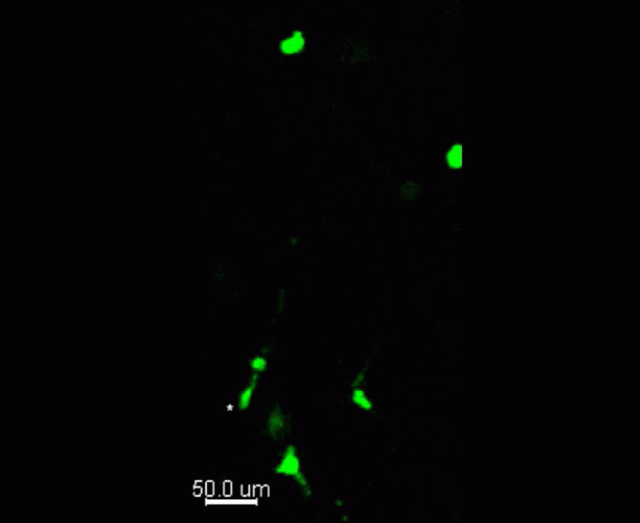MI weekly selection #201
MI weekly selection #201

Busy cells on the move in babies’ brains observed
Neurons move through babies’ brains to where they are needed most in the first few months after birth, and these movements have now been seen by researchers. Researchers say the cells are most active in newborns, with activity slowing when the babies are about 5 months old.
New Scientist
Great apes able to intuit what others are thinking
Great apes are capable of understanding false belief, which is indicative of theory of mind. The apes’ eye movements were tracked while they watched videos of a researcher looking for something that the apes knew wasn’t there anymore, and the eye shifts indicated that they looked at the spot where the researcher thought the item would be, suggesting they were able to work out what the human was thinking.
Bees can teach each other new skills
Bees can learn a task, then share that knowledge with other bees. In the experiment, researchers taught a bee how to pull a string to retrieve a reward, then released the trained bee into its colony, where they recorded how much the newly learned behavior spread.
Smallest transistor made from nanotubes, molybdenum disulfide
The world’s smallest transistor has been built using carbon nanotubes and molybdenum disulfide, according to a paper published in Science. The research could pave the way for new technology to make more efficient electronics.
Long-term effects of concussions
The number of concussions reported among those younger than 20 increased 71% between 2010 and 2015, according to a report from Blue Cross Blue Shield. Now, researchers from Oxford and other universities have revealed that experiencing a concussion can result in long-term physical and psychological problems.